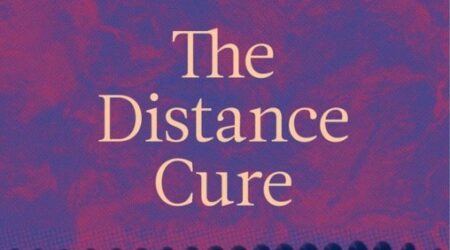On September 7, 2021, UC Berkeley’s Social Science Matrix and the Institute of International Studies (IIS) hosted a panel discussion, “Matrix on Point: Leaving Afghanistan,” that featured a group of scholars examining the geopolitical and humanitarian consequences of the end of the 20-year war in Afghanistan.
“‘Leaving Afghanistan’ refers to the withdrawal of the remainder of US troops from the country, as we approach what would have been a 20th anniversary of a long war and military presence on the ground,” explained Marion Fourcade, Professor of Sociology at UC Berkeley and Director of Social Science Matrix, in an introduction to the event. “More tragically, ‘Leaving Afghanistan’ evokes the thousands of people who have departed the country in recent weeks, under tremendously painful, chaotic, and dangerous circumstances, and the many more who might still be trying to leave at this very moment, or will in the near future.”
Daniel Sargent, Associate Professor of History and the Goldman School of Public Policy, moderated the panel, which featured a series of presentations followed by an open discussion. The event was presented as part of the Matrix on Point event series, which features focused, cross-disciplinary conversations on today’s most pressing issues.
Omar Sharifi, Assistant Professor of Social Sciences and Humanities, American University of Afghanistan, and Country Director of the American Institute of Afghanistan Studies, led off the presentations. Sharifi explained how Afghanistan was transformed by 20-year war. “For a lot of Afghans, it was not simply a war, it was also an age of transformation, and it exposed Afghanistan for the first time to what we today call ‘international community’,” Sharifi said. “And with the international community comes a lot of rules and regulations, and new concepts for how we have to organize ourselves to conform to this image that the United States and the world want us to be.”
The United States failed in part because of a lack of strategy and understanding of the Afghani people, Sharifi said. “Nobody understood Afghanistan — as a country, as a people, and as human beings — because Afghanistan has never been part of some major colonial power,” he said. “When the United States and the world came to Afghanistan, there was a gap in understanding. There was no Afghan voice in the whole international intervention in Afghanistan. The major question in the minds of a lot of us is, what was the purpose of the entire enterprise?”
Despite the gravity of the situation, Sharifi expressed optimism that the new generation of Afghanis will be less tolerant of a return to strict Taliban rule. “One thing that we’ve learned is that we cannot move forward without being connected,” Sharifi said. “Despite a lot of pessimism, there are people here on the streets… who want their voices to be heard. The fact that we see every day that women are coming on to the streets and demanding their rights is a unique phenomenon in our history. For the first time in 40 years, they have a voice. And they want that voice to be heard.”
In his talk, Robert Crews, Professor of History, Stanford University said that analysts too often frame the withdrawal as a story about the United States, rather than about Afghanistan. “For too long, we in the United States have looked at this through a narrow framing of supposed American national interest,” Crews said. “[Afghanistan] is an incredibly heterogeneous, diverse, complicated society. It’s only grown more complicated over the last two decades.”
Crews focused his talk on a specific subset of the Afghani population, the Hazaras, a Persian-speaking ethnic group. “It’s a fascinating community that has really emerged in the last few decades,” Crews explained. “They’ve become essential, indeed crucial to the emergence of a kind of civil society in Afghanistan since 2001. They’ve been at the forefront of education, of media, and all kinds of social activism. Hazara youth have been absolutely fundamental in changing society. And here, the roles of men and women have been absolutely fundamental.”
Crews noted that the Hazaras provide a lens on how Afghanistan has evolved since the war began in 2001 — and how the rule of the Taliban could have disastrous consequences. “Because of their minority status, Hazaras have been advocates of a more pluralistic and egalitarian society,” Crews said. “It’s not exaggeration to warn of the potential of genocide at this moment. The American administrations of the last two decades have left the world with no options here. We stand on the precipice not only of a return of groups that we associate with terrorism, but also one that we should associate with genocide, and that now has extraordinary power, arms, and wealth to make that happen. And the world is powerless to do really anything about it, militarily or otherwise.”
Dipali Mukhopadhyay, Associate Professor in the Global Policy Area of the University of Minnesota Humphrey School of Public Affairs, lamented the abrupt withdrawal and evacuation, noting that the “catastrophe of the evacuation is a kind of coda that punctuates and exemplifies the American project of building states in the service of the so-called war on terror.”
Mukhopadhyay said that the rise of the Taliban was predicable, and that “a lot of observers, myself included, believed in the merit of an eventual American withdrawal. But we knew that the way in which that withdrawal was managed could mean the difference between a viable peace process and the government’s collapse.”
She related how, in recent weeks, she and others have faced a harrowing challenge in trying to help Afghanis get out of their country, as they were forced to develop lists of people who might be most likely to be evacuated, based on their circumstances. “Every list I made involves this obscene set of calculations,” Mukhopadhyah said. “Are there too many children in this family to include them on the list? Has the way this journalist framed this threat scary enough to get attention? Will women make for more compelling victims than men? And all of my collaborators in this effort carried their own lists and we were negotiating with each other, hoping that if we provided information, we could get a spot on a flight for someone on our list.”
“The end of the American war is not very different from its beginning, but the hypocrisy undergirding the effort is now particularly on display,” Mukhopadhyay said. “Because today, we see this insidious narrative taking hold this notion that the United States and its allies tried so hard to get the Afghan people and their leaders a chance at democracy, but they didn’t take us up on that generous offer. And now it’s time for us to admit that promoting governance abroad is hard to do, and we’re better off focusing on matters at home. And I think it’s very important for me personally that that narrative not stand. It is imperative to stress in this moment that the American invasion of Afghanistan was for its own ends. And it unfolded in terms that the state-building project crippled the democratization effort in a number of meaningful ways. It deliberately created dependencies and conditionalities and restrictions that in effect doomed the project before it even began.”
In his remarks, Georgi Derluguian, Professor of Social Research and Public Policy, NYU Abu Dhabi, noted the parallels to the Soviet withdrawal from Afghanistan, and explained that the design of the United States in entering the war was was “world domination,” because “if you move into a place like Afghanistan, you are not only to west of China, you are to the south of Russia, you are to the north of India, and you are next to Iran. And once you move into Iraq, you’re not only next to Iran, but you’re a central member of OPEC by default.”
Derluguian noted that the next phase could entail a ripple effect that transforms other Central Asian republics, including Uzbekistan, Turkmenistan, and Kazakhstan. “They seem patently defenseless, including against their own populations,” Derluguian said. “Is it going to be a big and spreading region of failed states?”
He also pointed out that nations like Russia, Pakistan, and China will also play a role in determining the fate of Afghanistan and surrounding nations in the coming years. “This s a moment of enormous danger,” Derluguian said.


